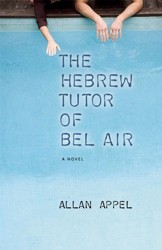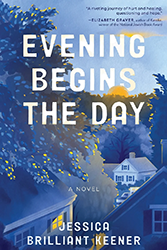September 29, 2017
Planning a Yom Kippur sermon to impress a new congregation and, he hopes, earn a new position, Rabbi Jonah Grief begins a narrative confession/philosophical memoir, or sutra, reminiscent of his Buddhist leanings. An unconventional rabbi who occasionally employs Buddhist meditation methods, Jonah frankly describes his 1960s childhood and adolescence, his first marriage, his second wife’s death, and his mature experiences trying to uphold Jewish morality as he sees it in a 1990s world. Desperately searching to “find” himself and his own spirituality, Rabbi Grief gains a new maturity while grappling with some of life’s mysteries. Readers of Appel (Till the End of Time, Doubleday, 1990) may even feel that they have grown along with this most unusual rabbi as he unwittingly entertains us with his laborious search to make Judaism relevant for himself and his congregation. Jewish readers may best appreciate this fine novel, but you certainly don’t have to be Jewish to understand it.





